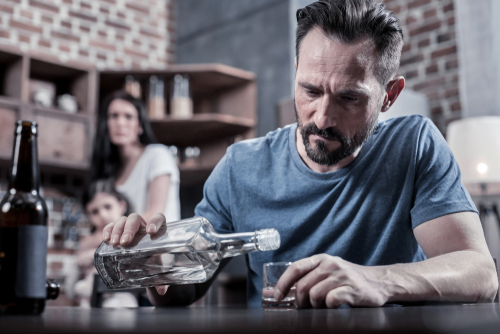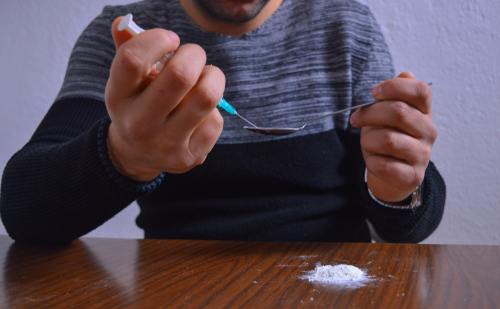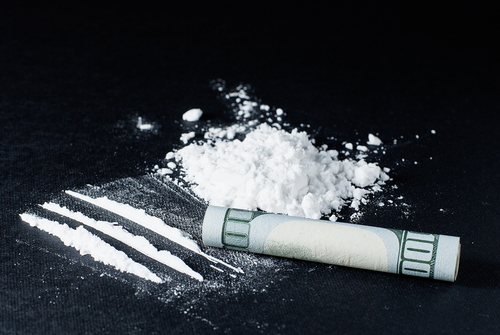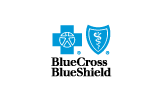

Cognitive Behavioral Therapy focuses on negative thinking patters, behaviors, and emotions to identify cognitive distortions and false beliefs that lead to destructive behaviors. CBT highlights the connections between these elements and can help you identify how each affects the other. CBT helps you develop coping strategies and cognitive techniques to improve your mental health and address current problems.
Dialectical Behavior Therapy is aimed at providing you with Distress Tolerance skills to help you learn to cope with difficult emotions that can result from trauma, depression, anxiety, grief, and even the recovery process.
DBT is focused on cultivating healthy responses to distress that will replace self-destructive behaviors like substance abuse and self-harm through mindfulness psychotherapy.
DBT is especially effective with Co-occuring Disorder, the presence of one or more mental disorders in addition to a substance abuse problem, because DBT teaches us to resist impulsivity, manage crisis, and process our emotions in a healthy way.
When you enter residential treatment at Pathways Recovery Center, you’ll be assigned an experienced addiction counselor. Your counselor will work with you on your treatment plan and goals and help you work through your feelings, your behaviors, and your thoughts.
The objective of individual counseling is to help you process the difficult circumstances, memories, and hang-ups that are feeding the addiction in your life. We want you to develop a detailed understanding of yourself so that you can move forward with better coping skills and reach your personal goals.
When we become trapped in the cycle of substance abuse and addiction, we often end up isolating ourselves from our friends and family. We feel ashamed and like no one can truly understand what we’re going through. Group counseling will give you the realization that you are not alone in addiction or recovery.
Through the perspectives and experiences of others you will gain insight and hope about your own circumstances. Your unique experience will surely help someone else who feels isolated in their own problems. Those who struggle with addiction often struggle with interpersonal relationships too. Group counseling will help develop your social skills and ability to relate to others. Together you will learn about Relapse Prevention, Seeking Safety, Anger Management, Grief & Loss and other therapeutic imperatives that help manage addiction.
12 Step groups can be a crucial part of the social support you need for long-term recovery. Many people find themselves ashamed of their addiction and lifestyle, but 12 Step groups can show you that addiction can affect anyone, from any background. More importantly, 12 Step Groups can show you that everyone can recover. 12 Step Groups demonstrate that the group is more powerful than the individual. Free from judgement, you can learn coping techniques and recovery strategies from others that will help you get through the overwhelming and difficult days we all go through in recovery. When you meet newcomers, you will remember the difficult trials of those first few days and you get the invaluable experience of helping someone else. 12 Step groups are part of keeping your recovery for a lifetime. When you leave treatment, their doors will always be open.
Pathways Recovery Center employs several holistic therapies to help improve your overall well-being. We use Art Therapy to help you express your feelings and manage stress. Fitness and physical therapies will help you feel stronger physically and work out the tension you’ve been storing in your body. With hiking nearby in the Asuza Canyon, you get the mental health benefits of the outdoors along with the physical empowerment of exercise. Yoga and meditation also provide nourishment to your overall well-being and help strengthen your focus.

Detoxing from drugs and alcohol can be very dangerous to do alone. Symptoms like seizures, dehydration, and psychosis can put you at great risk. Pathways Recovery Center is a 24-hour, incidental medical services, residential treatment facility licensed and monitored by the State of California Department of Health Care Services (DHCS) to provide detoxification services from alcohol and other drugs in a safe environment. We offer medically-assisted treatment (MAT) residential detoxification services for adult men and women 18 years and older. Let PRC help you take the first step to recovery safely and effectively!

At Pathways Recovery Center, we offer a full service residential alcohol and drug program designed for individuals who need to get away from the fast-paced outside world to take time for reflection and serenity. Our residential treatment services offer a well-rounded balance of individual counseling, group sessions, therapeutic experiential groups, 12 step meetings, socialization activities, holistic therapies, and recreation. Our therapeutic and educational groups were designed to help the individual communicate honestly with themselves and others in a confidential and intimate setting. You can overcome substance abuse!

Gorgeous mountain views, nearby hiking in the Azusa Canyon and Azusa Wilderness Park, and short distance to beaches make us a great location for getting the recovery and serenity you need.
Pathways Recovery Center Believes That Anyone Suffering From Addiction Can Recover And Experience The Joy Of Life Again. Join Us In Fighting Addiction One Person At A Time.




Call us today or fill out the form and one of our Admissions Specialists will contact you ASAP.
1033 N Soldano Ave. Azusa, CA 91702
1-866-682-0901
admissions@pathwaysrecovery.center




